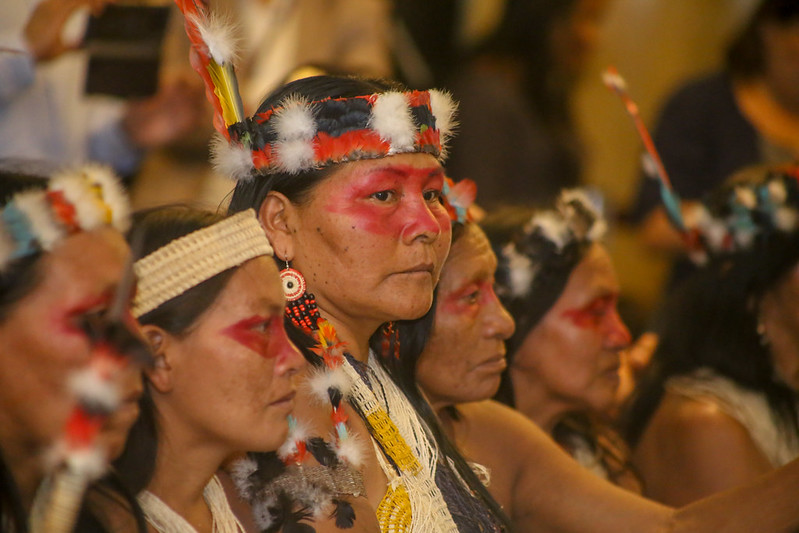Will COP16 on Biodiversity Listen to Indigenous Women or Corporate Lobbyists?

Will COP16 on Biodiversity Listen to Indigenous Women or Corporate Lobbyists?
Indigenous women have long been at the forefront of the global movement for land and territorial rights.
By Juana Vera Delgado and Chithira Vijayakumar
22 October 2024
COP16, the UN World Summit on Biodiversity, is underway in Cali, Colombia, from October 21 through November 1. This summit carries a crucial task: establishing policies and actions to reverse the alarming trends of biodiversity loss and species extinction driven by human activities. World leaders attending are tasked with ensuring that agreements align with the objectives of the Convention on Biological Diversity (CBD): “the conservation of biological diversity; the sustainable use of the components of biological diversity; and the fair and equitable sharing of the benefits arising out of the utilization of genetic resources.” These agreements must also amplify the voices of all stakeholders, particularly Indigenous peoples, local communities and people of the Global South, translating their experiences and insights into inclusive actions to combat biodiversity loss.
The Colombian government, the summit’s host country — which holds the dubious distinction of having the highest number of murdered environmental activists in any given year since 2012 — has launched a call to commit to “Peace with Nature” by moving toward an economic model that does not prioritize the extraction, overexploitation and pollution of nature. In line with this objective, the current government has also been strongly promoting the approval of the Work Plan for the Indigenous Peoples and Local Communities of the world, which recognizes Indigenous peoples as the primary custodians of biological diversity. But how are Indigenous peoples, especially Indigenous women, responding to this pivotal call, and what critical messages and concerns will they bring to the summit?
Indigenous Women as Guardians of Biodiversity Conservation
The voices and concerns of Indigenous women are especially critical, for two reasons: First, they are the primary guardians of biodiversity and ecosystems of their territories, from rivers and lagoons to seeds and wildlife. In fact, Indigenous peoples safeguard 80 percent of the world’s remaining biodiversity, and Indigenous women have long been at the forefront of the grassroots movement for land and territorial rights globally.










